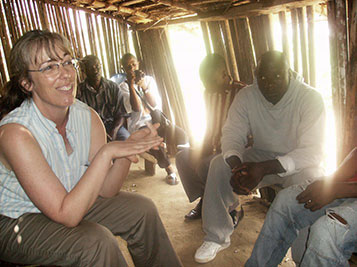At Collaboration Specialists, assessment is critical. We have seen far too many good ideas fail because no one consulted people in the context.Even those knowledgeable about a country can be tripped up by not knowing the particular location: the strengths and experience to build on, the ground that’s already been covered, the conflict actors, even the practical aspects that can make or break whether anyone engages in your project – or even shows up.
The elicitive method and the “do no harm” ethic are our touchstones. We build in time just to be present in the community. We build relationships at all society levels and with internationals. We create conditions for people to be forthcoming, and we listen. A lot. We want to know what’s already working and ideas for expanding it. What do the people affected see as the gaps? Who drives the conflict, who are the bridges, and who do they listen to? Who is already working in the area and how can we strengthen each other? What would be the effects if we tried this idea or that?

Our friends in Kenya know of a project that co-located a school and a water source, to be shared by two warring tribes, in the hopes that it would create commonality. Instead, the tribes killed children in an attempt to control the water source. It is too costly a mistake to make. We must invest in a good assessment if the work is to have any meaning.
Ginny has participated in assessment teams for projects addressing campus violence in Sierra Leone, community reconciliation in Liberia, and pastoralist conflict in Kenya. We offer thorough assessments supporting more effective and cost-efficient project design, and we continue to assess and adjust throughout the life of a project.







